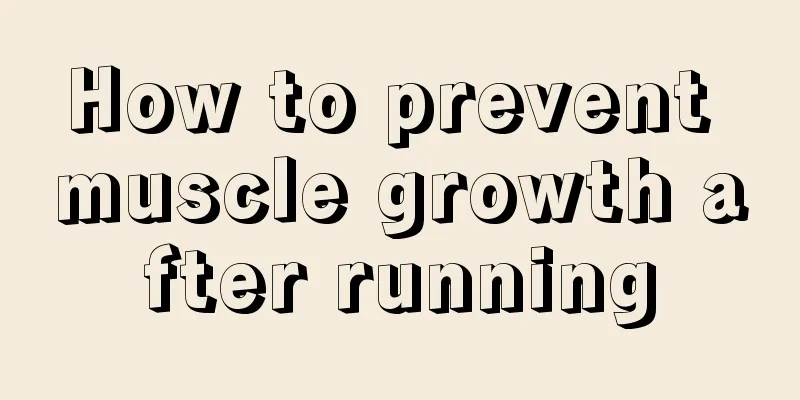Is it okay to take a walk right after dinner?

|
In daily life, many people have the habit of taking a walk after meals, especially after dinner, which is considered to be the best way to maintain health. However, experts say that walking after meals is not healthy, especially for some people with gastrointestinal diseases, walking immediately after a meal can cause many complications. Especially for some people who work at a desk for a long time, walking after a meal is also an unhealthy lifestyle attempt, which can cause obesity or excessive stomach acid. So can we take a walk after a meal? What kind of impact will a walk after a meal have on human health? What is the basis for experts' opinions on taking a walk after a meal? So what else can't we do after a meal? People often say: "Walk a hundred steps after a meal, and you can live to be ninety-nine." In fact, this statement is not very scientific. From the perspective of digestive physiological function, the stomach is in a full state after a meal, and at this time it is necessary to ensure that the gastrointestinal tract has sufficient blood supply for initial digestion. Taking a proper rest after a meal can ensure that the gastrointestinal tract gets more blood supply. According to recent research by brain physiology experts, for some people, "feeling full" simply means that the stomach feels full, but the nutrients are not absorbed into the body, and the body is still in a "hungry" state. If you get up and walk away in a hurry at this time, some of the blood will inevitably be concentrated in the motor system, which will delay the secretion of digestive juices, disrupt the normal digestion of the stomach, and easily induce functional indigestion. Therefore, “walking a hundred steps after a meal” is not suitable for everyone. It is only suitable for people who are less active in daily life, especially those who work at a desk for a long time. It is also suitable for people who are overweight or have excessive stomach acid. If these people take a 20-minute walk after a meal, it will help promote gastrointestinal motility, secretion of gastrointestinal digestive juices and digestion and absorption of food, which is beneficial to their health. But you should start walking at least 20 minutes after a meal. The energy consumed by hurriedly walking after a meal is actually an overdraft of the physical strength before the meal. The blood in the human body will be distributed more to the trunk, limbs and other active parts, which will reduce the blood supply to the gastrointestinal tract and the secretion of digestive enzymes accordingly. If you then immediately engage in activities that require high sensitivity and accuracy, such as driving, it can easily lead to adverse consequences. According to a survey by experts from the American Health Association, many car accidents are related to driving immediately after a meal. After a meal, when sitting in the driver's seat, the blood is concentrated in the stomach, the brain suffers from severe hypoxia, making it difficult to concentrate, reaction speed slows down, and flexibility decreases. Some people are suitable for "not being able to walk" after a meal. This refers to people with poor physical constitution, especially those suffering from diseases such as gastroptosis. These people should not take a walk after a meal, and even general walking should be reduced. They can choose to lie down for 10 minutes after a meal. Because the stomach is full of food after a meal, performing upright activities at this time will increase the vibration of the stomach, increase the burden on the stomach, and cause or aggravate gastroptosis. Patients with cardiovascular and cerebrovascular diseases should avoid exercising after meals. Because gastrointestinal activity increases after meals, blood flow to the gastrointestinal tract increases, and blood flow to the brain decreases accordingly. In addition, the temperature is low in winter, and there is a large temperature difference between indoor and outdoor dining environments. People's faces are flushed and they sweat profusely while eating. If they leave the restaurant in a hurry and walk in the stimulation of the cold wind, the sweat glands and capillaries in the subcutaneous tissue will suddenly contract, which can easily cause cold headaches and increase the blood supply burden on the heart. Therefore, it is more appropriate to sit quietly after a meal, close your eyes and relax for 30 minutes before moving around. What I want to remind most here are those friends who like to take a walk after meals. If you must take a walk, it is best to wait half an hour after the meal before going for a walk. At the same time, you should also pay attention to keeping warm during the walk. Of course, for some people who are not suitable for exercise after meals, they should not take a walk after meals. |
<<: Vaseline hand cream, how to use Vaseline hand cream to maximize its effectiveness
>>: What is diphtheria and what harm does it cause?
Recommend
How to reduce facial swelling and redness due to allergies?
For some people with allergies, they are prone to...
Is it dangerous to have brain cancer?
What harm does brain cancer bring to patients? Pe...
Can aloe vera gel remove burn scars?
No one wants to have scars on their body, especia...
What tests should patients with testicular cancer do
Testicular cancer is a serious male disease that ...
How to take care of severely dry and peeling skin
When you encounter severe dry and peeling skin, t...
What are the symptoms before death from lung cancer
Lung cancer originates from the bronchial mucosal...
How long does it take to get the highest cure rate for tongue cancer
If tongue cancer is found in the early stage, you...
Is it okay to wash your eyes with tap water?
Eyes are the windows to the soul. Eyes are the mo...
The relationship between stomach and heart
In fact, all organs and tissues in the human body...
What supplements should I take for facial paralysis
There are also a large number of muscles on the f...
What is the cause of ascites in pancreatic cancer
In the early stage of pancreatic cancer, various ...
How to clean the belly button?
After a day's work, we have to wash our bodie...
What are the factors that cause testicular cancer
What are the factors that cause testicular cancer...
Lose weight and sagging breasts
Obesity is something that many people do not want...
What are the symptoms of glioma
Each of us longs for a safe and healthy life, but...









